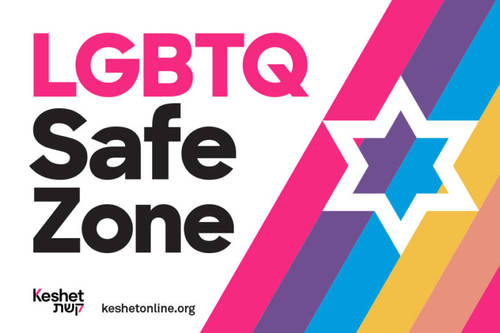(Rabbi Knopf, cont'd)
It is thanks to the democratic values at the heart of the American experiment that the Jewish experience in America has been unique in our people's history. Even though those ideals have been periodically unrealized or insufficiently secured for all Americans, Jews have flourished in the United States in ways without parallel in our people’s roughly two thousand years of Diaspora.
But our democratic ideals are not inherent or self-perpetuating. Human beings have a tendency, in the words of the twentieth-century German philosopher Erich Fromm, to “escape from freedom,” to gravitate away from the messiness and uncertainty that are part and parcel of diversity and liberty toward homogeneity and authoritarianism. It’s a reality that has been evidenced throughout modern history, with catastrophic results.
Benjamin Franklin expressed this in a characteristically memorable way back in 1787. Right after the constitutional convention concluded, a Philadelphia power-broker named Elizabeth Willing Powel asked Franklin, “Well, Dr. Franklin, what have we got, a republic or a monarchy?” And Franklin famously answered, “A republic — if you can keep it.” The freedoms at the core of our democracy must be tended to and cultivated at every turn. Left to the gravitational pull of our own passions, predilections, and prejudices, we risk losing — even voluntarily giving up — our precious liberty, or suffer fates worse still. If we can keep it, if we commit ourselves to keeping it, we will thrive as a pluralistic democracy. And if we can’t, we will invariably succumb to the encroaching tyranny.
In insecure times such as these, I find myself turning to the time-honored wisdom of our tradition for guidance on how to move forward.
Rabban Shimon ben Gamliel taught that the fate of the world depends on three virtues: justice, truth, and peace. So important is Rabban Shimon’s wisdom that this teaching is memorialized on Temple Beth-El’s three most publicly visible stained glass windows. Rabban Shimon argued that, without the presence and proliferation three virtues, the world will remain broken. Only through them can the world be repaired and perfected. The task of the Jewish people is to repair and perfect our broken world by ensuring the triumph of justice, truth, and peace. And, I would argue, the work that is before all of us to heal and ultimately perfect our Union requires the triumph of justice, truth, and peace.
A commitment to justice means fighting for a society in which all people are regarded and treated as equals. A commitment to truth means fighting for truth to be exalted as the standard by which our arguments and debates are adjudicated; and exalting education, debate, and intellectual diversity. And, finally, a commitment to peace, according to our tradition, means pursuing radical inclusion and embracing collective responsibility.
It is an incredible coincidence — some might call it serendipity — that this Shabbat we begin Sefer Shemot, the Book of Exodus. The origin story of our people, Exodus centers on the persecution and oppression of a religious and ethnic minority population at the hands of one of history’s most iconic tyrants and his nation of collaborators, enablers, and bystanders. It reaches its grand climax with Israel’s ultimate liberation, and then it continues with teaching after teaching, instruction after instruction, law after law that mean to guide this nation of freed slaves to create a counter-Egypt, a society that affirms the equal and infinite dignity of all, that strives for equity and fairness, and that celebrates compassion and kindness, inclusion and peace.
Our tradition does not regard Exodus as mere history. Were that so, we might have long ago jettisoned it, since its historicity is a matter of significant dispute. Rather, Jewish tradition instructs, “in every generation a person is obligated to see him or herself as if he or she went out of Egypt.” The exodus story is unfolding in the eternal present, which also means that redemption is possible if we can see it and embrace it. The choices are ours: tyranny or freedom, oppression or justice, degradation or dignity. As we confront this perilous moment in our nation’s history, let us ready ourselves to choose wisely.
Please know that Cantor Rosenblatt and I are always here for you, in times of trouble as well as in times of joy. Please don’t hesitate to reach out ( email Rabbi Knopf or email Cantor Rosenblatt ) if we can offer any support or guidance during these difficult times.
As we begin a new year, may we recommit ourselves to the sacred work of making “justice well up like water, and righteousness like an unfailing stream” (Amos 5:24), speedily bringing about the day when “nation will not take up sword against nation, and they will never again know war” (Isaiah 2:4).
L'shalom,
Rabbi Michael Knopf



